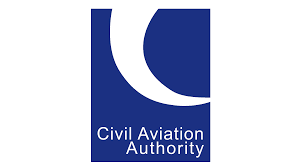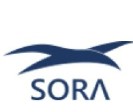

In recent years, the use of drones in emergency response has revolutionized the way first responders handle critical situations. Among the cutting-edge technologies enabling this transformation is uAvionix’s Casia G. As a key component of Drone as a First Responder (DFR) programs, Casia G detects aircraft flying around drone operations, allowing potential collisions to be avoided. To support the growth of these public safety programs, uAvionix is excited to announce a significant development: the Casia G will soon support nighttime operations, broadening its utility and effectiveness for emergency services.
The applications of Casia G are diverse, including supporting inspections of construction sites and critical infrastructure, as well as monitoring rail yards and solar farms. However, its most impactful use is in DFR programs. When an emergency call is made, having a drone on the scene first provides invaluable situational awareness to police, fire, and emergency services, ensuring a more efficient and safer response.
Casia G is foundational to the enablement of DFR programs, facilitating rapid deployment of drones to emergency scenes. The system alerts operators to nearby aircraft and allows them to safely operate drones beyond visual line of sight (BVLOS) without the need for human visual observers. This means that drone pilots can rapidly launch and control the aircraft from remote locations prior to responders arriving on the scene with full approval from the Federal Aviation Administration (FAA).
“Casia G has become a critical piece of infrastructure, enabling organizations to fly BVLOS without human visual observers,” explains Jason Hardy-Smith, VP of Product at uAvionix. “This allows DFR drone pilots to be remote from the UAS during flight and expedites the time from when an emergency call comes in to when a drone is on-site and providing better situational awareness to emergency responders.”
Currently, Casia G operates effectively from half an hour after sunrise to half an hour before sunset. However, recognizing that many emergencies occur at night, uAvionix has prioritized the development of nighttime capability. Drew Swift of the Sacramento Sheriff’s Office elaborates, “Crime doesn’t stop when it gets dark. In fact, a very high percentage of serious crime occurs after the sun sets. UAS are a critical tool in our arsenal to react in an efficient and timely manner to 911 calls, providing us the situational awareness to protect both the public and officers. As such, having DAA [Detect and Avoid] capabilities 24/7 is absolutely necessary.”
The upcoming nighttime functionality, slated for release in October 2024, is an exciting advancement. The existing hardware and cameras will be used, leveraging built-in GPS to determine the precise time of dusk at each location. As darkness falls, Casia G will automatically switch to night mode, adjusting camera settings and utilizing a new algorithm designed to detect navigation and anti-collision lights on an aircraft.
As seen in the following video, the algorithm has demonstrated impressive capabilities, with initial performance reports indicating that the detection range at night will be equal to or even surpass that of daytime operations. “All in all, it’s a really exciting development. We found that we’re able to use the same hardware and cameras as our daytime solution,” Hardy-Smith notes. “With just a software update, we’ll be able to bring nighttime detection of aircraft to Casia G customers, and we’ll be delivering it this October.”
The introduction of nighttime operations for Casia G will significantly enhance the effectiveness of DFR programs, ensuring that drones can provide critical situational awareness regardless of the time of day. This development underscores uAvionix’s commitment to advancing drone technology to meet the evolving needs of emergency services, making communities safer and response times faster.
As we approach the launch of this groundbreaking feature, uAvionix continues to lead the way in integrating innovative solutions into public safety operations. Stay tuned for more updates as we get closer to October 2024, and witness firsthand how Casia G is transforming DFR programs across the nation.

The United Kingdom Civil Aviation Authority is looking to facilitate the development of safe and useful RPAS and AAM test sites, where market entrants can test and evaluate their products.
This document is the summary of the key findings of the consultation exercise conducted to understand innovators’ key requirements of test facilities for their novel products.
The CAA aims to support rapid aviation innovation by understanding and addressing the needs of operators and manufacturers during testing. A survey conducted in June 2023 highlighted diverse needs and regulatory barriers faced by the industry.
The CAA has established a Test and Evaluation team, issued new policies for RPAS modifications, and begun collaborating with the Ministry of Defence.
Future Plans: The CAA plans to develop a Pre-defined Risk Assessment for RPAS testing, create a list of test sites, and support hydrogen test sites.
15 August 2024

Project Skyway is part of Phase 3 of Innovate UK’s Future Flight Challenge Programme, exploring a drone superhighway for BVLOS flights.
Connected Places Catapult‘s role was to engage with various stakeholders to understand perceptions, expectations, and concerns about drones and BVLOS usage. Stakeholders see benefits like promoting UK innovation and enhancing sustainability but have concerns about the superhighway’s resilience and logistics.
Industry Perceptions: Industry stakeholders see potential benefits in sustainability, time-saving, and safety but have concerns about regulations, system resilience, and operational complexity
Report recommendations: The report concludes with recommendations on emphasizing transparent communication, independent regulation, and comprehensive risk mitigation to ensure successful implementation and public acceptance.
2 August 2024

Disclaimer: All jobs posted here are from LinkedIn and other job sites including member and non-member organizations.

ISS Aerospace is looking to recruit a UvX Software Systems Engineer.

Skyports are recruiting for several roles.

Skanska is looking to recruit an Engineering Surveyor Technician – Drone Pilot

Welsh Water are looking to recruit a UAV Drone Pilot

Panton McLeod is looking to recruit to their Graduate Programme, including working with drones

The CAA is looking to recruit an Airspace Modernisation Oversight – Associate

Archangel Imaging is looking to recruit an Embedded Software Engineer (AI for Drones)

Midwich are looking to recruit two roles:

Menapia are looking to recruit 4 roles:

QuadRotor Services Ltd is looking to recruit a Drone Pilot

Ajuno are looking to recruit a Lead Project Manager – Robotic Technologies

SORA Aviation are looking to recruit for three roles:
1) Senior/Principal Design Engineer – Propeller Hub & Dynamics
2) Senior/Principal Stress Engineer – Loads & Aeroelastics
3) Senior/Principal Engineer – Flight Dynamics & Simulation

Lincolnshire Police are looking to recruit a Deputy Chief Drone Pilot

National Grid are looking to recruit a UAS Operations Lead

BAE Systems are looking to recruit a UAS Pilot

Sees.ai are looking to recruit a UAS Pilot Technician

Sonomatic are looking to recruit a Job: Senior UAV Operator / Project Manager.

uAvionix, a leader in avionics technology for Uncrewed Aircraft Systems (UAS), today announced that the ping200XR Mode S ADS-B transponder with integral aviation GPS, has received Technical Standard Order (TSO) certification from the Federal Aviation Administration (FAA). This milestone is the latest major TSO certification for uAvionix and offers the lowest certified Size, Weight, and Power (SWaP) solution for worldwide airspace compliance.
The ping200XR TSO has received TSO-C112e and TSO-C166b for transponder and ADS-B functionality, TSO-C88b for its internal pressure altimeter, and TSO-C145e for the integral aviation GPS. Weighing only 52 grams and measuring 47 x 72 x 10mm, the ping200XR offers everything required for airspace access or for certified aircraft in a single enclosure. The ping200XR TSO ensures the aircraft can be detected by Secondary Surveillance Radar (SSR), Traffic Collision Avoidance Systems (TCAS), and ADS-B IN receivers, facilitating seamless integration into national and international airspace.

“Receiving TSO certification for the ping200XR represents a significant achievement for uAvionix and underscores our commitment to advancing UAS technology in a way that prioritizes safety and compliance,” said Christian Ramsey, Chief Commercial Officer for uAvionix. “This approval from the FAA is a testament to the reliability and safety our products bring to the skies, enabling broader access and acceptance by regulators and Air Navigation Service Providers (ANSP) worldwide.”
In its uncertified format, the ping200XR has been particularly popular with high altitude aircraft and balloons which must operate in Class A and above airspace. These certifications open the ping200XR TSO to markets which require certifications such as Europe, the United Kingdom, Australia, and New Zealand. Additionally, the ping200XR TSO is particularly advantageous for aircraft seeking type certification such as future eVTOL/AAM platforms.
ping200XR TSO will begin shipping in September 2024.
Since its inception in 2015, uAvionix has been at the forefront of avionics for crewed and uncrewed aircraft, developing a suite of products that address the unique challenges of integrating uncrewed systems into the global airspace infrastructure. Each TSO-certified product from uAvionix not only paves the way for safer skies but also supports the expanding utility of UAS across commercial, government, and recreational sectors.
12 August 2024

Join Elliott Parnham and Jonathan Howl, Host of the Green Business Podcast, as Elliott shares his insights on how drones are transforming business operations across various sectors.
Innovative Drone Technology: Elliot Parnham, Founder of Skyfarer, discusses how drones are transforming business operations, from logistics to infrastructure inspection.
Sustainability Benefits: The episode highlights the environmental advantages of using drones, such as reducing carbon footprints and enhancing efficiency
Challenges and Solutions: Elliot shares insights on overcoming regulatory, technological, and operational hurdles in adopting drone technology
Future Potential: The conversation explores the latest advancements and the promising future of drones in various industries
Sounds like an exciting episode! 🚀

Organisations can apply for a share of £750,000 to support outreach projects that will contribute to the Generation Aviation programme. Outstanding outreach projects that can meet the following three objectives should apply before 27 September 2024.
Inspire the next generation of aviation professionals, championing the opportunities available in the sector. Activities should focus on developing interest and engagement with the opportunities available in aviation. This might also involve supporting someone to develop skills or experience that could be useful for a career in aviation but should not replace formal education i.e. delivery of statutory licences or educational qualifications.
Reach individuals who would not otherwise be aware of opportunities available within the aviation sector. We would encourage applicants to consider how their project might benefit under-represented groups (i.e. women and girls, people from minority ethnic backgrounds, people with disabilities, lower socio-economic backgrounds).
Have a broad impact by reaching and engaging multiple people. This might be achieved through some form of mass participation event, delivery through an education setting or youth group, or via virtual methods that can reach a mass audience.
Closing Date: 27 September 2024
Applicants Informed by: 22 November 2024

The UKRI’s Future Flight Challenge (FFC) aims to position the UK as a leader in aviation by funding research and development of new flight technologies. A public dialogue was conducted to understand public views on Future Flight technologies, including non-passenger-carrying drones, eVTOLs, and electric/hydrogen Regional Air Mobility (RAM).
Alongside a wider programme of social science research funded by the Challenge, UKRI/Innovate UK commissioned this dialogue, which was led by the Future Flight Challenge Social Science Research Director and team based at the University of Birmingham. The dialogue was supported by UKRI’s Sciencewise programme and delivered by Thinks Insight & Strategy.
July 2024